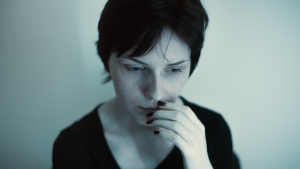Anyone who’s been in an abusive relationship will know that there is a pattern of cycles to the abuse. The perpetrator, be they your parents, partner or even your child, will not constantly keep the abuse at a high level. If they do, we are less likely to tolerate such a relationship. Everyone has a breaking point, there comes a time when enough really is enough.
The perpetrators understand this and when they think we are reaching that breaking point they dial back the abuse, by going back the start of the cycle again. Let us look at the different stages of the cycle:
 Honeymoon Stage
Honeymoon Stage
With partners, this stage will remind you of ‘the honeymoon period’, those first few months where the two of you were inseparable, and everything was tinted pink. This is the time where the perpetrators are very attentive, respectful, protective and very insistent that they want to do things for you. They are full of remorse and promises that they will never say or do anything to hurt you again. They shower you with gifts and compliments, reminding you of how the two of you used to be together; they are more helpful around the house. Parents and children also make promises that the abuse will never happen again; they are so full of regret and guilt that we forgive them and carry on. It is the hope that things will go back ‘to the way they were’ that keeps us in this cycle.
This part of the cycle can last days, weeks or even months, before the tension starts building again.
Tension Stage
This is the stage where the mood swings come back; you won’t know what you’ve done or what has made your partner angry, all you know that things are being slammed and he/she is continuously muttering just out of earshot, and there is a distinct aura of ‘do not approach me’ coming from them. If your partner is passive aggressive as most perpetrators are, then this stage will see the return of the passive aggressive behaviour.
This stage is also where the accusations, insults, fault finding, and threats start to make a return. Even when victims have gone through the cycle a few times, this stage can really take them by surprise, as they believed the promises that were made to them in the previous stage. They don’t know how to act so they start treading carefully, almost like they’re trying to find a way through a minefield.
Again, this stage can last a few hours, days, weeks or months; in some cases it has lasted years, as the victim settles into accepting the passive aggressive behaviour, the controlling and the jealous rages. He/she learns how to deal with these behaviours and the perpetrator gets comfortable in the knowledge that he/she won’t be left and so continues the verbal and emotional abuse.
Inevitably there is an explosion; as either the perpetrator becomes more confident and starts increasing the level of abuse or the victim reaches breaking point.
Explosion Stage
In this stage the abusive behaviour increases; more intimidating actions to cause fear, more attempts to control the victim. Physical assault, slamming doors, swearing, all become a daily standard in this stage. Silent treatments and yelling can also be described as ‘the explosion’, as they are a culmination of the behaviours and feelings from the ‘tension’ stage; it doesn’t always have to be an act of physical abuse. Victims can get really hurt in this stage; both physically and emotionally.
This is the part of the cycle that victims start thinking about leaving, they may even threaten to leave. To avoid this, the perpetrators go back to the honeymoon stage, restarting the cycle.
There are many reasons we don’t leave abusive relationships immediately; we can’t see a way out, we believe the promises that are made to us, we have children and we think that it’s better for the children if we stay (after all he/she doesn’t abuse the children), or we are financially dependent and can’t survive on our own.
There will come a time where the victim will leave the relationship, when they are ready; for my mum it was after 35years, for you it might be sooner. There are organisations that can offer practical and emotional support if you do want to leave an abusive relationship. Contact us for more information.


Leave a Reply